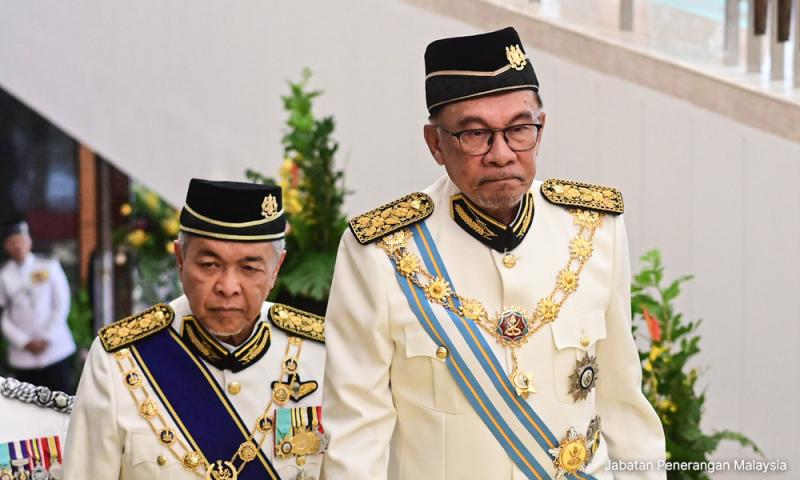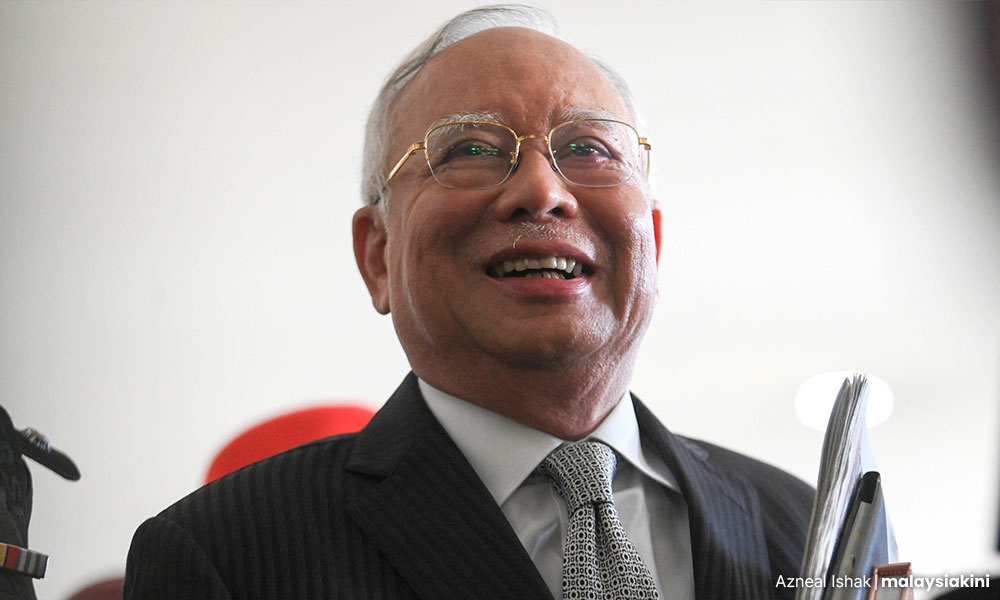
P Ramasamy
Published: Sep 19, 2023 1:43 PM
COMMENT | Can Prime Minister Anwar Ibrahim, by answering questions and queries in Parliament on the discharge not amounting to an acquittal (DNAA) granted to Umno president Ahmad Zahid Hamidi, finally put an end to the controversial episode?
Anwar had spoken on this issue a few times, saying that he never interfered in the judicial process and, in Singapore, he said that the 47 charges were withdrawn because former attorney-general (AG) Idrus Harun was of the opinion that Zahid was a victim of political persecution under former prime minister Dr Mahathir Mohamad.
Zahid was charged with corruption and money laundering involving funds that belonged to Yayasan Akalbudi, a foundation he founded.
If only Zahid had disbanded Umno as allegedly instructed by Mahathir, he would not have been prosecuted.
This was the basis that Idrus withdrew the charges against Zahid, now the deputy prime minister, and applied for a DNAA.
Anwar’s defence was that the DNAA was the sole doing of Idrus, predicated on the discretionary powers of the AG.
Anwar has maintained his stand that he had nothing to do with the decision of the High Court that relied upon the advice of Idrus.
Whether the prosecution under the new AG will appeal the case against Zahid on the grounds of new evidence remains to be seen.
Govt on shaky ground
However, some analysts have argued that the DNAA in favour of Zahid had nothing to do with political prosecution under Mahathir but more to do with the fate of the new government if Zahid was convicted.
In fact, the High Court had earlier declared that there was a prima facie case against Zahid.
The testimony of hundreds of witnesses, time spent on the case by both the prosecution and defence, and the sheer wastage of public funds have raised fundamental questions about the role of the AG and the public prosecutor.
Some supporters of the present government - rather than focusing on the matter of Zahid’s controversial DNAA - have sought to raise the separation of powers and the need to separate the functions of the AG and the public prosecutor.
If political persecution was the reason for the DNAA, then the AG’s Chambers must prepared to question even the charges and subsequent conviction of former prime minister Najib Abdul Razak.
Published: Sep 19, 2023 1:43 PM
COMMENT | Can Prime Minister Anwar Ibrahim, by answering questions and queries in Parliament on the discharge not amounting to an acquittal (DNAA) granted to Umno president Ahmad Zahid Hamidi, finally put an end to the controversial episode?
Anwar had spoken on this issue a few times, saying that he never interfered in the judicial process and, in Singapore, he said that the 47 charges were withdrawn because former attorney-general (AG) Idrus Harun was of the opinion that Zahid was a victim of political persecution under former prime minister Dr Mahathir Mohamad.
Zahid was charged with corruption and money laundering involving funds that belonged to Yayasan Akalbudi, a foundation he founded.
If only Zahid had disbanded Umno as allegedly instructed by Mahathir, he would not have been prosecuted.
This was the basis that Idrus withdrew the charges against Zahid, now the deputy prime minister, and applied for a DNAA.
Anwar’s defence was that the DNAA was the sole doing of Idrus, predicated on the discretionary powers of the AG.
Anwar has maintained his stand that he had nothing to do with the decision of the High Court that relied upon the advice of Idrus.
Whether the prosecution under the new AG will appeal the case against Zahid on the grounds of new evidence remains to be seen.
Govt on shaky ground
However, some analysts have argued that the DNAA in favour of Zahid had nothing to do with political prosecution under Mahathir but more to do with the fate of the new government if Zahid was convicted.
In fact, the High Court had earlier declared that there was a prima facie case against Zahid.
The testimony of hundreds of witnesses, time spent on the case by both the prosecution and defence, and the sheer wastage of public funds have raised fundamental questions about the role of the AG and the public prosecutor.
Some supporters of the present government - rather than focusing on the matter of Zahid’s controversial DNAA - have sought to raise the separation of powers and the need to separate the functions of the AG and the public prosecutor.
If political persecution was the reason for the DNAA, then the AG’s Chambers must prepared to question even the charges and subsequent conviction of former prime minister Najib Abdul Razak.

It is not that Najib’s defence lawyers have not advanced the argument of his alleged political persecution by Mahathir.
Irreparable damage
It was not one charge against Zahid but 47 that were painstakingly prepared by the prosecution.
I am not sure what reasons other than those already given by Anwar might be brought up in Parliament to exonerate Zahid.
I am not sure that additional reasons to egregiously exonerate Zahid might be palatable to the public.
Irreparable damage has been done to the country’s legal and judicial system.
Short of further prosecution against Zahid, nothing can endear the present government to the general public.
The unity or Madani government was ushered in as a reformist government after the last general election in November 2022.
There was hope that reforms would be its main focus.
However, the government has hardly been in power for 10 months and there are already telltale signs of inertia and sluggishness.
The impression given is that what matters most to the government is to stay in power, immaterial of the political costs.
The much-talked-about reforms to rejuvenate the system seem to be disappearing on the horizon.
It is clear that without removing the albatross around the neck of the government, reforms are as good as dead.
Guess who is the albatross?
P RAMASAMY is former Penang deputy chief minister II.
No comments:
Post a Comment